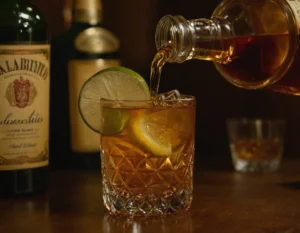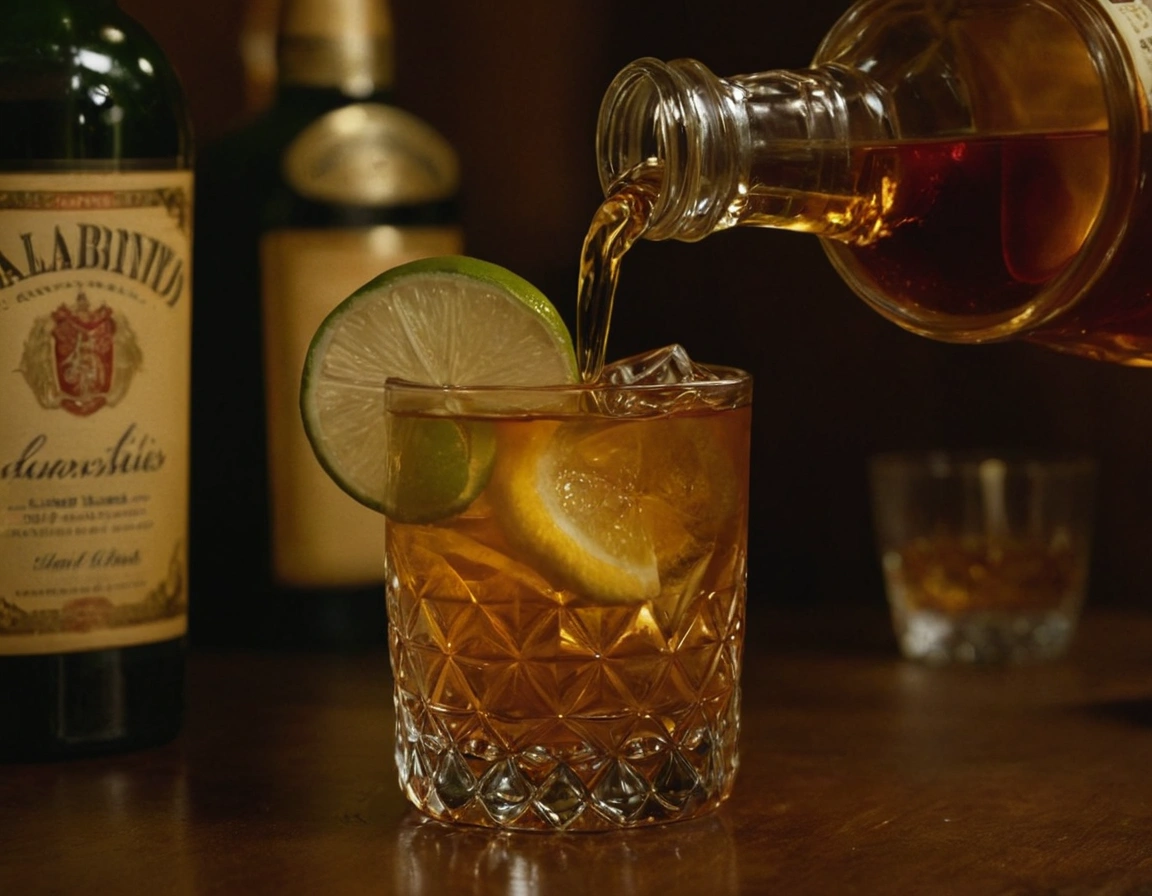
Herb-infused liquor is a delightful way to elevate your cocktails and culinary creations by adding layers of flavor and complexity. Whether you’re looking to infuse vodka, gin, rum, or another spirit, the process is simple and rewarding. In this guide, we’ll explore the basics of herb infusion, provide step-by-step instructions on how to make your own herb-infused liquor, and suggest creative uses for your homemade spirits. Additionally, we’ll offer tips on internal linking to enhance your website’s SEO and user engagement.
Why Infuse Liquor with Herbs?
Herb-infused liquors are a fantastic way to introduce unique, aromatic flavors to your drinks and dishes. Infusing liquor with herbs allows you to tailor the flavors to your personal taste preferences, making your cocktails truly one-of-a-kind. Additionally, the process of infusing liquor is straightforward, requiring only a few ingredients and a bit of patience.
The Benefits of Herb-Infused Liquor
- Customizable Flavor: You can create unique blends of flavors tailored to your taste, whether you prefer a hint of rosemary or a bold punch of basil.
- Versatility: Herb-infused liquors can be used in a variety of cocktails, from classic martinis to innovative new drinks.
- Culinary Uses: These liquors can also be used in cooking, adding depth to sauces, marinades, and even desserts.
Choosing the Right Herbs and Liquor
The key to making great herb-infused liquor lies in selecting the right herbs and base liquor. Here’s how to make the best choices:
Selecting the Base Liquor
When choosing a base liquor, consider the flavor profile you want to achieve. Here are some common options:
- Vodka: A neutral spirit that allows the flavors of the herbs to shine. Ideal for delicate herbs like mint or basil.
- Gin: Already infused with botanicals, gin pairs well with additional herbs such as rosemary, thyme, or juniper berries.
- Rum: A sweet and rich spirit, rum works beautifully with warm spices and tropical herbs like lemongrass.
- Tequila: Its bold and earthy flavor complements herbs like cilantro and jalapeño.
Choosing the Herbs
When selecting herbs, think about the flavor combinations you enjoy. Here are some popular choices:
- Mint: Fresh and cooling, mint is perfect for summer cocktails like mojitos.
- Rosemary: Piney and aromatic, rosemary adds depth to gin or vodka.
- Basil: Sweet and peppery, basil is excellent in both vodka and rum infusions.
- Thyme: Earthy and slightly lemony, thyme pairs well with gin and tequila.
- Lavender: Floral and fragrant, lavender is a unique addition to vodka or gin.
Step-by-Step Guide to Making Herb-Infused Liquor
1. Gather Your Ingredients and Tools
Before you begin, you’ll need the following:
- Herbs of your choice: Fresh herbs work best, but dried herbs can also be used.
- Base liquor: Vodka, gin, rum, or tequila.
- A clean glass jar with a tight-fitting lid: Mason jars work well.
- A fine-mesh strainer or cheesecloth: For filtering the infused liquor.
- A funnel: For transferring the infused liquor into bottles.
2. Prepare the Herbs
- Wash and Dry the Herbs: Rinse your herbs under cold water to remove any dirt or residue. Pat them dry with a clean towel or let them air dry completely.
- Bruise or Chop the Herbs: To release the flavors, gently bruise the herbs with the back of a spoon or chop them coarsely. This will help the liquor absorb the flavors more effectively.
3. Combine the Herbs and Liquor
- Fill the Jar: Place the prepared herbs into your glass jar. Pour the liquor over the herbs until they are fully submerged. Ensure there’s enough liquor to cover the herbs completely, but leave some space at the top of the jar.
- Seal and Shake: Seal the jar tightly and give it a good shake to mix the ingredients.
4. Infuse the Liquor
- Store in a Cool, Dark Place: Place the jar in a cool, dark place, such as a pantry or cupboard. Let it infuse for at least 3 days, shaking the jar gently once a day to help distribute the flavors. Depending on the herbs used and your flavor preference, the infusion process can take anywhere from 3 days to 2 weeks.
- Taste Test: After a few days, taste the infusion to see if the flavor is to your liking. If it’s not strong enough, let it sit for a few more days.
5. Strain and Bottle the Infused Liquor
- Strain the Liquor: Once the infusion has reached the desired flavor, strain the liquor through a fine-mesh strainer or cheesecloth to remove the herbs.
- Bottle the Liquor: Using a funnel, transfer the strained liquor into clean glass bottles. Seal tightly and label the bottles with the type of herbs used and the date.
6. Store and Enjoy
- Store Properly: Keep your herb-infused liquor in a cool, dark place. It will last for several months if stored correctly.
- Enjoy: Use your herb-infused liquor in cocktails, cooking, or as a unique gift for friends and family.
Creative Uses for Herb-Infused Liquor
Herb-infused liquor is incredibly versatile and can be used in many creative ways:
1. Cocktails
- Herb-Infused Martini: Use rosemary-infused vodka in a martini for an aromatic twist.
- Basil Mojito: Swap out traditional rum for basil-infused rum in a mojito for a fresh, herbaceous flavor.
- Lavender Collins: Mix lavender-infused gin with lemon juice, simple syrup, and soda water for a floral take on a classic Tom Collins.
2. Culinary Applications
- Herb-Infused Sauces: Add a splash of herb-infused liquor to sauces for meats or vegetables to enhance the flavor.
- Desserts: Use herb-infused liquor in dessert recipes like cakes, custards, or even ice cream for a unique twist.
- Marinades: Incorporate herb-infused liquor into marinades for chicken, beef, or tofu for a flavorful boost.
3. Homemade Gifts
- Bottled Infusions: Create a collection of herb-infused liquors, bottle them in decorative bottles, and give them as personalized gifts.
- Infusion Kits: Assemble a DIY herb infusion kit with small bottles of liquor, dried herbs, and instructions for friends and family to create their own blends.
Internal Linking Opportunities
Conclusion
Making herb-infused liquor is a simple and rewarding process that allows you to create unique flavors tailored to your taste. Whether you’re crafting cocktails, enhancing your cooking, or looking for creative gift ideas, herb-infused liquors are a fantastic addition to your culinary repertoire. By following the steps outlined in this guide, you can easily create your own herb-infused liquor at home and experiment with different combinations to find your perfect blend.
FAQs
Q: How long does herb-infused liquor last? A: Herb-infused liquor can last for several months if stored in a cool, dark place. However, the flavor may gradually diminish over time, so it’s best to use it within 6 months.
Q: Can I use dried herbs instead of fresh? A: Yes, dried herbs can be used, but they may require a longer infusion time to achieve the desired flavor.
Q: What’s the best way to clean the herbs before infusion? A: Rinse the herbs under cold water and pat them dry with a clean towel. Ensure they are completely dry before adding them to the liquor to prevent dilution.
Q: Can I infuse more than one herb at a time? A: Absolutely! Experiment with combinations like rosemary and thyme, or basil and mint, to create complex and layered flavors.
Q: Is there a limit to how long I should infuse the liquor? A: Generally, it’s best to taste the liquor after 3-5 days and adjust the infusion time as needed. If left too long, some herbs may impart a bitter taste.

